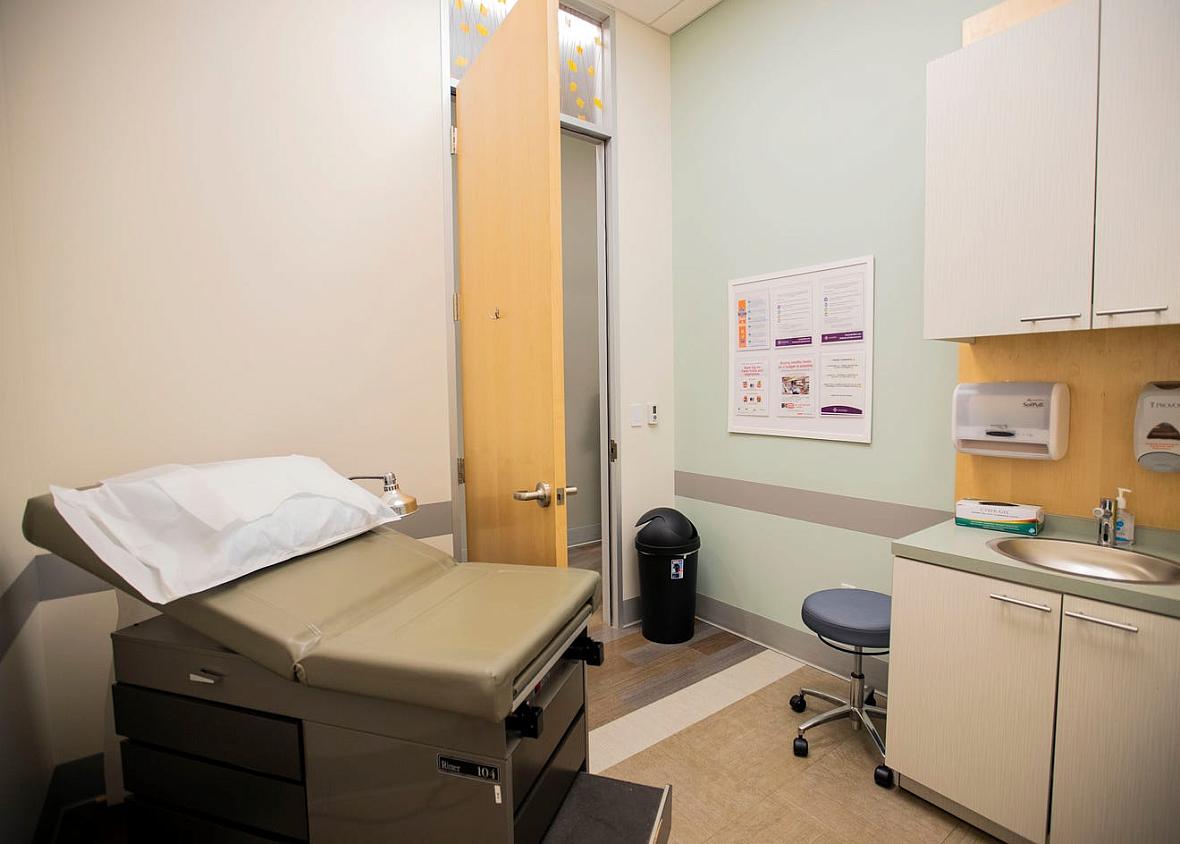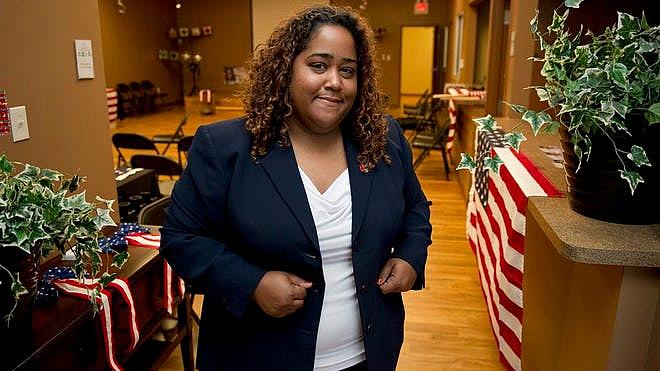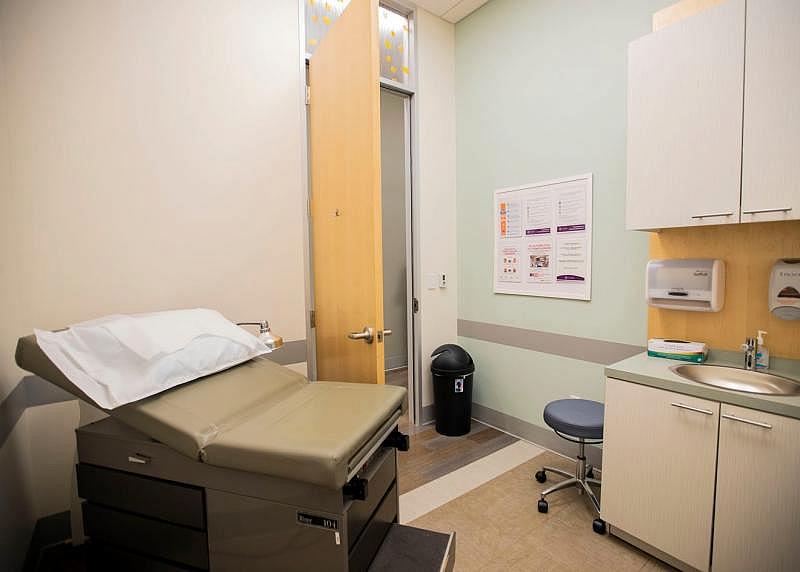More than 100,000 people in Shelby County are facing a pandemic without health insurance
This story is part of a larger project led by Sarah Macaraeg, a 2019 Data Fellow who is investigating the disproportionate number of asthma diagnoses and severe symptoms among Memphis children.
Other stories include:
5 things to know: How polluted streams interact with the Memphis Sand aquifer
Near Byhalia pipeline planned connection point, Valero leaked 800 gallons of crude oil in 2020
Byhalia pipeline: Toxic refinery pollution, monitoring blind spot in southwest Memphis
Toxic air. Insufficient monitors. Why Memphis families fighting Byhalia pipeline have had enough
To halt 'fast-track' Byhalia pipeline permit, Memphis groups file lawsuit in federal court

Ariel Cobbert, The Commercial Appeal
The novel coronavirus (COVID-19) is a pandemic. Reported illnesses range from very mild to severe, including death. Agencies anticipate widespread transmission will occur in the U.S. in coming months and recommend social distancing among other measures to slow the spread. Call your doctor and stay home if you are sick. Get more information at CDC.gov/coronavirus or contact the Tennessee Department of Health coronavirus information line at 877-857-2945 from 10 a.m. to 10 p.m. CT daily.
As the number of coronavirus cases and deaths continue to tick up around the country, an estimate of nearly 13% of people in Shelby County are facing the pandemic without health insurance.
That translates to approximately 111,000 to 128,000 people, allowing for the margin of error in the most recent publicly available Census data from 2018 — when the estimate was likely low given communities which have been undercounted historically.
Now, the number of uninsured is likely increasing as the economic impact of COVID-19 spreads alongside the virus itself. In his now-daily news briefing Tuesday, Governor Bill Lee said some layoffs in Tennessee have already occurred.
Billions in federal and state funds have begun to flow to help stem various dimensions of the crisis, from funding for medical equipment and nutrition assistance to paid sick leave and expedited unemployment benefits.
On Wednesday, Lee announced the creation of a $150 million fund to "help be responsive to health and safety issues resulting from COVID-19."
He also said he was in talks with the federal government on targeting Medicaid funds toward "some portion of the uninsured population and specifically for health conditions related to COVID-19."
But there is no guarantee yet that any Tennessean without insurance will have access to affordable care — for a virus for which 14% of cases require hospitalization and oxygen support and 5% require admission to an intensive care unit, according to the World Health Organization.
For State Sen. Raumesh Akbari, D-Memphis, the initial $150 million represents a good start, since it will give key agencies funding beyond their existing budgets, she said.
State Sen. Raumessh Akbari, D-Memphis, poses for a 2013 file photo. She currently serves with the Democratic Caucus chair and is a member of state Health Care Modernization Task Force.
But relief needs to resolve the matter of treatment for the uninsured next, said Akbari, the Senate Democrats' caucus chairman and a member of the state's Health Care Modernization Task Force.
"What I'd like to see, and I know a lot of people would like to see, these funds ... address what we know will be astronomical health care costs for individuals who are probably already financially stressed, given the social distancing regulations that people are following," Akbari said.
"We're talking aboutlow-wage workers, hourly workers, tipped workers people who, if they don't show up, they don't get paid."
Residents without insurance at risk
Joyce Richardson, 64, has long been without health insurance. She's worked as a Shelby County Schools cafeteria worker since 2011, while also caring for her 88-year-old mother.
Before schools closed over coronavirus concerns, Richardson worked four hours a day, five days a week, stocking industrial-sized bags of food and pantry items she said weigh no less than 50 pounds. She also set up the cafeteria line, maintained safe food temperatures and cleaned up the lunchroom at White Station High School, where nearly 2,000 students are enrolled.
She's relied entirely on the school system's Care Center clinic for all of her health needs. That includes the time a stack of industrial sheet pans fell on her head at work, Richardson said. And it includes the time she went to the clinic with chest pain.
"I had a real serious pain one time in my heart. And they tried to send me to the emergency room. And I knew I couldn't afford no emergency room bill," said Richardson, who makes $13.53 an hour. She went home instead.
Now, she said, "Whenever I have a flutter in my chest, I just take an aspirin."
Richardson's hope right now, if she or her mother is in need of care for coronavirus, rests in a statement she said she heard President Donald Trump say during a televised press conference.
"The president said we will be cared for," she said, "But I would like to have benefits, especially health care."
An emergency path to Medicaid expansion
Coronavirus cases in Tennessee
At least 860,084 people have been reported to have COVID-19 in Tennessee. According to reports, 12,380 have died.
In Tennessee, TennCare — the state's Medicaid program — provides health services to low-income pregnant women, children, the parents they depend on, seniors and people with disabilities.
Adults under 65, like Richardson, who do not have dependent children or a disability, do not generally qualify, currently.
Although Medicaid expansion has long been a controversial topic in the Tennessee legislature, a recent announcement from the Centers for Medicare and Medicaid Services shows the means to make it happen within days amid the coronavirus emergency.
The state of Florida became the first state approved to provide expanded Medicaid services, CMS announced on Tuesday, after state officials submitted a request asking the agency to waive certain requirements.
Uninsured, underinsured workers lack access to health care
The majority of Shelby County civilians who are uninsured and of working age are employed, according to the Census data. More than a third work full-time.
Workers without insurance power the distribution, construction, service, retail and arts and entertainment industries in Shelby County, the Census survey shows.
And when they need care, Dr. Scott Morris sees many of them — though he wishes it didn't need to be the case. Morris is the founder and chief executive officer of Church Health, a non-profit organization in Memphis that provides health services to people with little or no access to care.
"They don't qualify for TennCare or Medicaid, their job doesn't offer them health insurance. That's our niche," Morris said. And it's a broad one.
Overall, Church Health recorded nearly 63,000 patient encounters in 2019.
Church Health, provides medical services to low-income, uninsured Memphians, offers free or cheap yoga, meditation and Pilates classes for anyone who visits Crosstown. Ariel Cobbert, The Commercial Appeal
"We see many people who you'd assume have health insurance, but they don't," Morris said.
That includes self-employed professionals such as real estate agents; seniors who don't qualify for Medicare because they've been paid cash the majority of their working lives; and college graduates who've aged out of their parents' plans, Morris said.
Patients also include many undocumented and low-wage workers.
"We take care of the people who work to make our lives comfortable," he said. "They cook our food, they take care of our children, they wash our dishes, they cut our grass, they dig our graves. Yet when they get sick, their options are very few," Morris said.
With the onset of the coronavirus, he said, his patients are among those who will be hit hardest. Church Health is glad to fill a need, Morris said, but he considers the solution obvious.
"The no-brainer thing to do is expand Medicaid and immediately alleviate the need of thousands, tens of thousands of people."
Sarah Macaraeg is an award-winning journalist who writes investigations, features and the occasional news story for The Commercial Appeal. This story was produced through her participation in the USC Center for Health Journalism’s Data Fellowship.
[This story was originally published by Commercial Appeal.]

